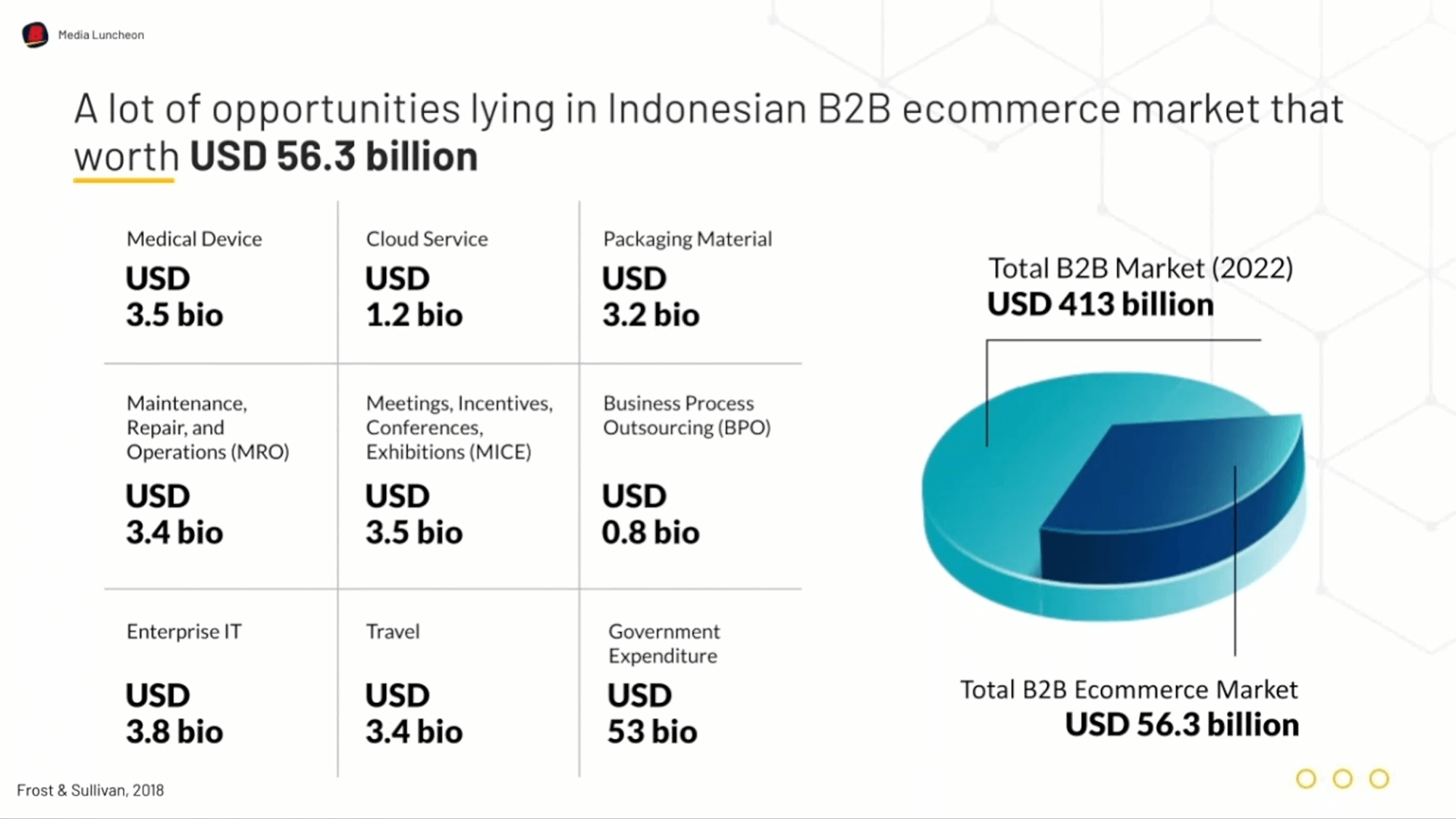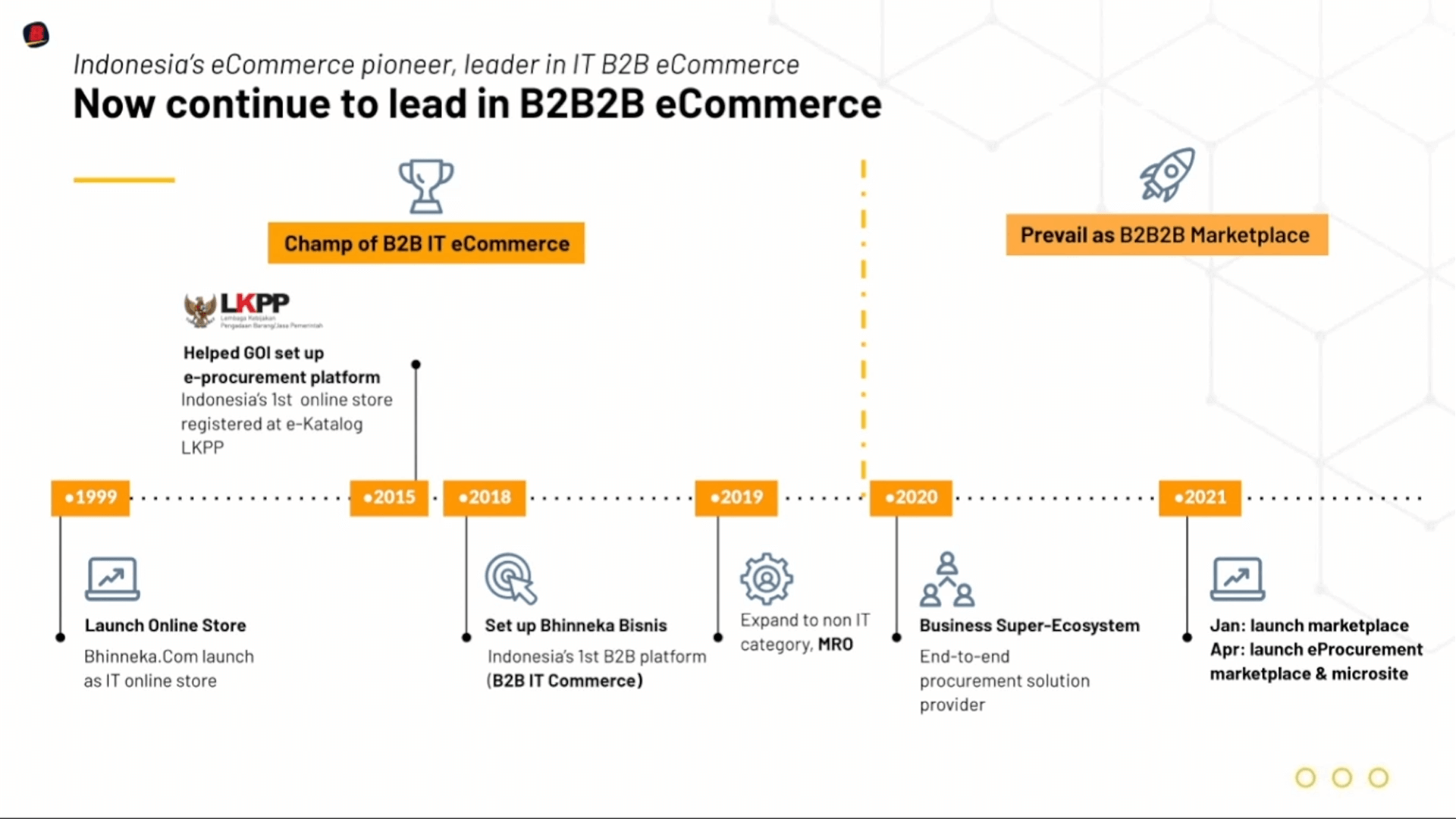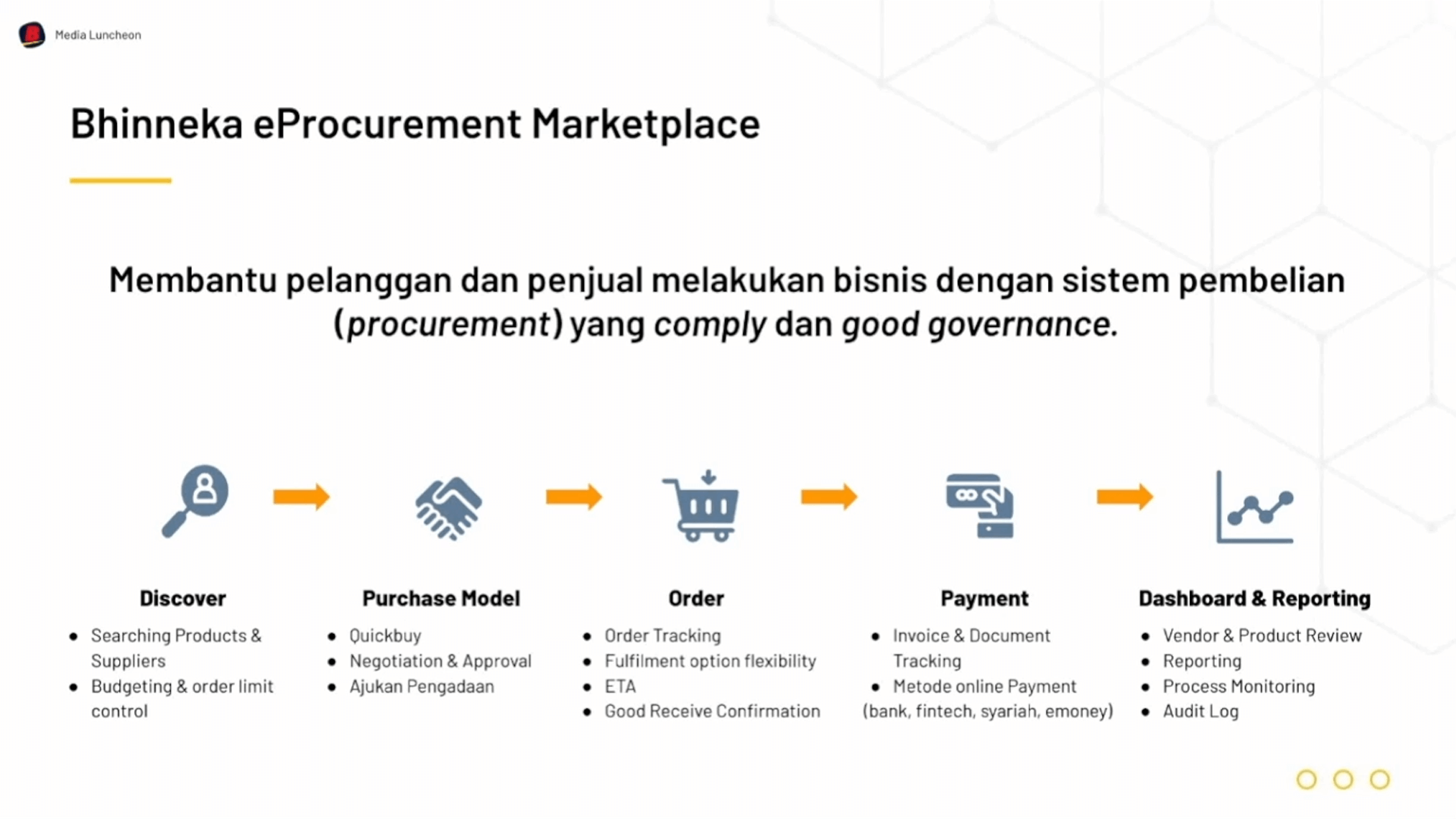More than two decades Bhinneka has been able to solidify its position as the top of mind for B2B e-commerce brands, especially in the 3C category (Computer, Communications, Consumer Electronics). This is reflected through DSInnovate survey for “B2B Commerce Services in Indonesia 2018“, as many as 32.7% of respondents chose Bhinneka as the most popular platform, followed by Ralali, Bizzy (now a Warung Pintar Group), Mbiz, and others.
It’s not easy to maintain this position. It takes continuous innovation to stay relevant to the market. In an interview with DailySocial.id, Bhinneka’s Chief of Commercial & Omnichannel Vensia Tjhin explained, the company has a strong presence as a B2B e-commerce brand as it has consistently worked on this market.
In fact, while expanding outside of its segment, such as B2C, the platform still pays attention to its main advantage, entering the campaign as a masculine brand.
“In assortment, we slowly entered with products that are identical to the men’s choices, which are the same as the needs of corporations. Then, we enter the everything store like a marketplace in general.”
Tjhin continued, “As a B2B market leader, being strong and top of mind gives added value in providing peace of mind while shopping because Bhinneka is also a trusted marketplace.”
The industry, citing a 2018 Frost and Sullivan report, is estimated to grow by $56.3 billion globally by 2022. In Indonesia, according to the Trade Minister Muh. Lutfi is estimated to reach IDR 1,900 trillion in 2030 or more than 34% of the Indonesian digital market. In further detail, the B2B segment is predicted to contribute Rp763 trillion, including logistics and supply chain activities.
In general, Tjhin continued, Indonesia’s e-commerce industry has grown very rapidly, especially in the last 10 years, to respond to various challenges and needs of society through technology. Therefore, Indonesian e-commerce is currently divided into various segments. Since the beginning, it was known as the retail (B2C) realm, expanding to corporations (B2B), and government (B2G).
“Again, everything is possible because of technology, but the implementation characteristics indeed vary between B2C, B2B, and B2G.”
She said, the role of e-commerce is actually not just a downstream role, aka being a marketing channel for finished goods for later to end-users. As a B2B e-commerce player, he sees that with the accelerated digital transformation through the pandemic, the educational process also needs proper, transparent, and guaranteed support. Thus, in parallel the company will also get a high demand for raw materials.
Tjhin admits, the huge potential of this segment has helped Bhinneka, as a pioneer of B2B e-commerce, become a factory that spawns many talented people, therefore, they can work further into other B2B e-commerce startup models. The company continued with this step by participating in the Merdeka Campus program.
“Several projects by campus internals are products that target the B2B market. This concrete step is to educate about the different segments, as well as efforts to create ready-to-use talent in the industry.

E-procurement marketplace, best practice for B2B
Over time, the 3C category succeeded in establishing Bhinneka as a dominant player in the market since the Bhinneka.com website was first launched in 1999 until the end of 2018. It did not stop there, the company expanded into other categories, such as MRO (tools), and customized product solutions according to the business needs of customers from various sectors.
In Bhinneka’s journey since 2019, the company is focusing on serving the B2B2B marketplace segment with six business lines. It’s IT and MRO products, digital printing solutions (DPS), offline stores and service centers, business solutions, B2B2B marketplace platforms, and digital products.
In this regard, the company has developed several products, including an e-procurement marketplace, which is an open-platform and provided free of charge for all business players to process the procurement of goods/services by certain suppliers using the site/application as an interface.
The e-procurement marketplace is here to help customers sell and to do business with a complied procurement system and good governance, aimed at the corporate segment, SMEs, and government agencies. Tjhin said, this approach is actually accepted as a solution for B2B consumers that usually seed as a sector that is resistant to adapting technology.
“We first divided the B2B segment, for the large-mid with business processes exposed to the system, it tends to be easier to adapt the digital purchasing process, especially corporations that already using ERP. The adoption of this open market e-procurement is actually accepted as a solution. For the MSME market, this is very interesting, those who serve corporations are automatically in a procurement system.”
Currently, there are around 9 thousand merchants in close groups have joined the e-procurement marketplace offering more than 150 thousand SKUs. Outside the Bhinneka.com base, there are around 2 thousand individual merchants have also joined and ready to serve B2B client requests through the initial verification process.
“When on-boarding in e-procurement, they must have consistency to carry out procurement, that’s why we verify. This is to create more satisfying customer journey and avoid problems in fulfilling requests.”
The next initiative is to encourage an innovative business ecosystem through a B2B mini marketplace by providing a Bhinneka marketplace platform to all parties in need. Whether it’s universities, communities, governments, to build economic activities from an ecosystem.
Tjhin said, Bhinneka has collaborated with a number of institutions, such as President University (Campus Marketplace), Bunda Mulia University (Biemers Shop), Mojokerto City Government (Mojokerto Marketplace), Ternate City Government (Ternate), and Solo City Government, to creation of mini marketplaces.
In the pipeline, nearly 30 educational institutions and communities are currently processing the mini marketplace through Bhinneka, two of which have officially launched. “The mature Bhinneka platform can be used easily, saving initial capital costs (the cost of creating your own platform) for campus businesses, MSMEs, including the City Government and Local Governments.”
Business contribution and future plans
Although all of the company’s products and services target all business scales, in percentage, Bhinneka’s largest business comes from B2B/G clients by 80%, and the rest comes from B2C clients. The product category that contributed the largest revenue is 3C, followed by MRO or tools.
“In terms of procurement, when the 2020 pandemic started, the business did experience an impact and there was a decline in several sectors. However, this is accompanied by an increase in other sectors, such as medical devices included in the MRO category. Masks, hand sanitizers, firing thermometers, are widely purchased until mid-2021.”
Tjhin was reluctant to explain further detail about the company’s performance using numbers. He only explained that the company continues to perform various leaning processes to be more agile and pay attention to productivity in various aspects. “With these various operations excellence activities, we are optimistic that the company can continue to grow and make profits.”
In the near future, the company will also announce several plans and strategies to firmly strengthen its position as a pioneer of e-commerce in Indonesia. “We remain focused on achieving the things we had planned, but were delayed due to the pandemic. We also have to make changes to some plans and strategies,” he concluded.
–
Original article is in Indonesian, translated by Kristin Siagian


